Jessica Yu and Adelina Comas-Herrera (Care Policy and Evaluation Centre, London School of Economics and Political Science)
The LTCcovid research projects database shares information about ongoing and completed research projects on COVID-19 and long-term care, with the aim of facilitating collaboration and learning across countries. The projects are categorized by country covered, care setting, outcomes of interest, funding, methodological approach and group covered. Each project has its own page, where outputs and publications can be added when they become publicly available, see for example this study investigating the impact of COVID-19 measures on people living with dementia and their care partners in Australia:
This post provides an updated overview of the the research projects registered in the database as of the 21st March 2021. Since 14th January 2021, 43 new projects have been added to the database. The database now has 115 research projects, covering 38 different countries (see figure 1). Some are international and cover more than one country. There has been a significant increase in projects based in Canada, with the number of Canadian projects rising from 5 to 24. Despite an increase in the number of research projects, there were only 3 new countries added to the database – Malaysia, Hong Kong, and Jamaica. There, are of course, many other research projects that have not yet been added to the database, so this map is not fully representative of all the research projects on COVID and Long-Term Care.

Out of 115 research projects, 86 cover care homes (long-term care residential facilities) and 37 community or home-based care settings.
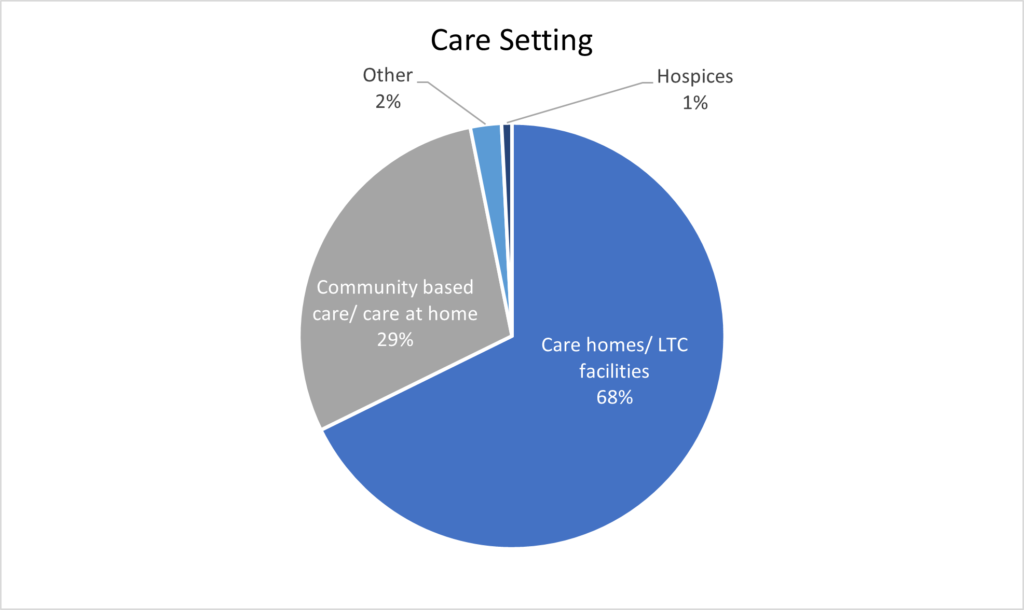
Funding is primarily from public sources, with 67 projects receiving some degree of public funding. 17 of the projects are not funded, reflecting the commitment of researchers to contribute to building the evidence base to address the challenges posed by COVID-19 in the long-term care sector.
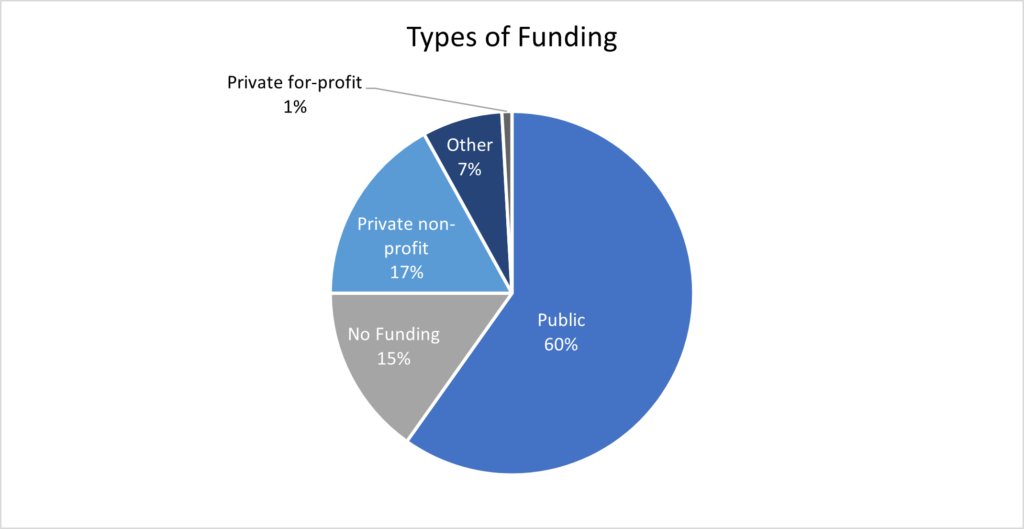
People living in care homes represent the most studied population group (covered by 21% of studies) followed by staff working in long-term care (18%), care providers (16%), and unpaid carers (9%). 9% of studies cover people living with dementia. Since 14th January, there have been new projects covering care partners of people living in LTC facilities and people requiring end of life care. There are still limited studies covering people using care services in the community and people with learning disabilities and sensory impairments.
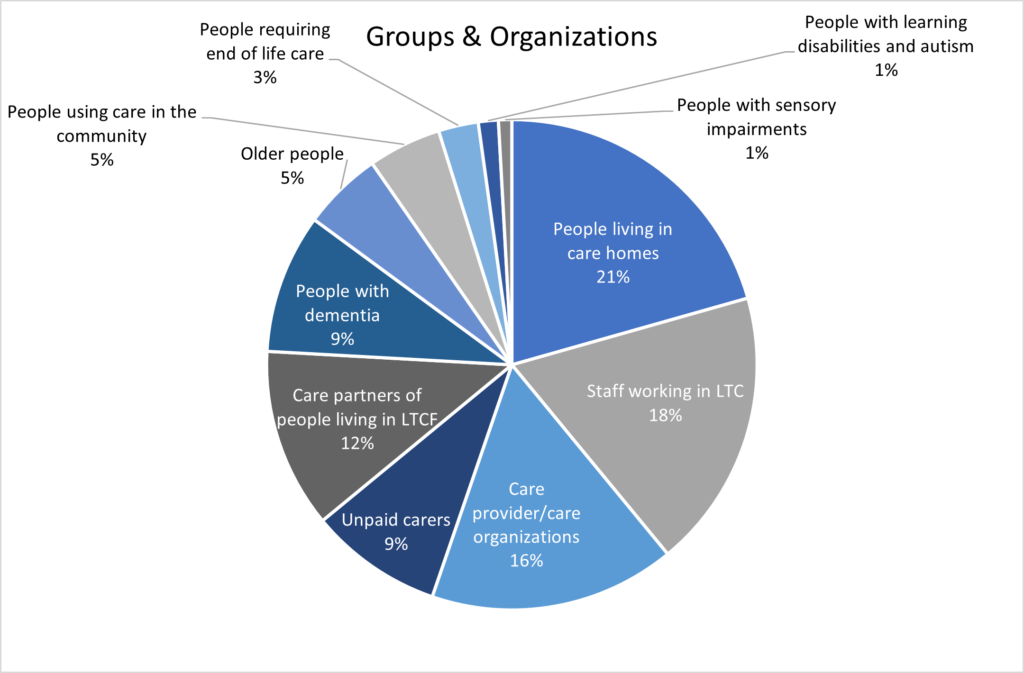
In terms of methods, most studies are qualitative interviews or surveys, followed by analyses of secondary data, literature reviews and synthesis, and policy analysis. There has been an increase in the number of trials, with 14 projects covering a trial or evaluation.
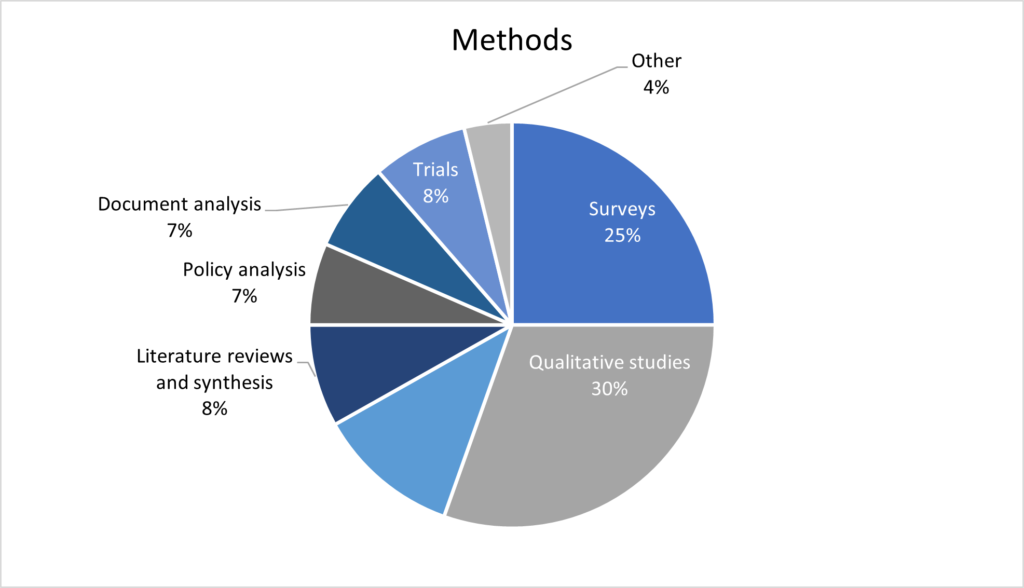
The database covers a broad range of interventions with the most common group being interventions to prevent and control of COVID-19. Other interventions include measures to support staff and unpaid carers, measures to compensate for isolation policies, and measures to improve access to healthcare.
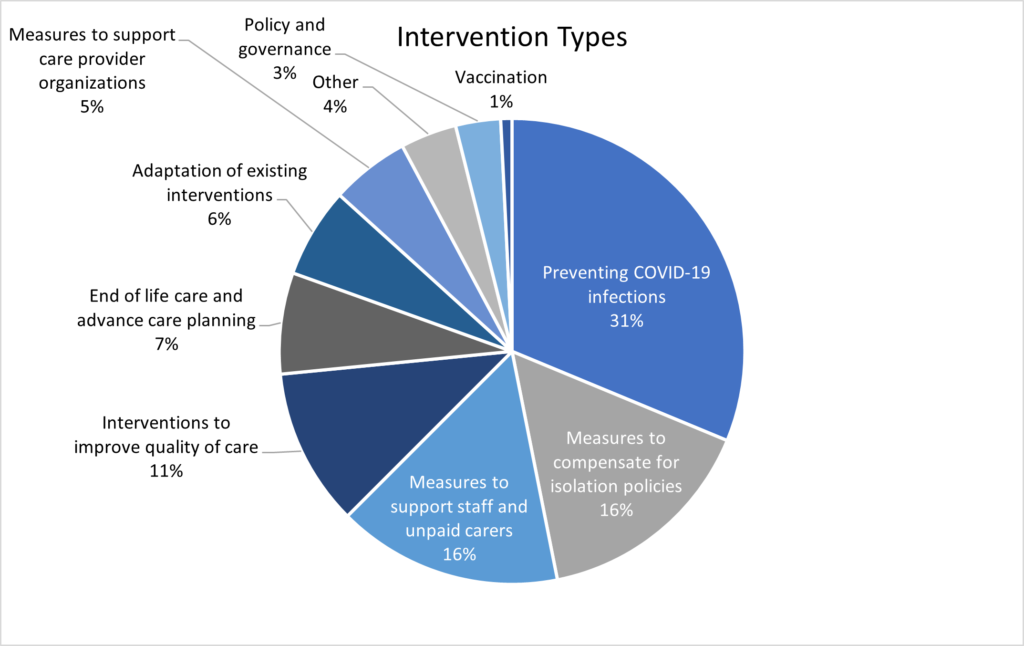
The impacts of the pandemic and of interventions and are being evaluated across multiple outcomes with the most common being wellbeing and quality of life, mental health, and quality of care. As the pandemic persists, there has been an increase in the number of projects covering implementation outcomes to assess the effectiveness of LTC policies.
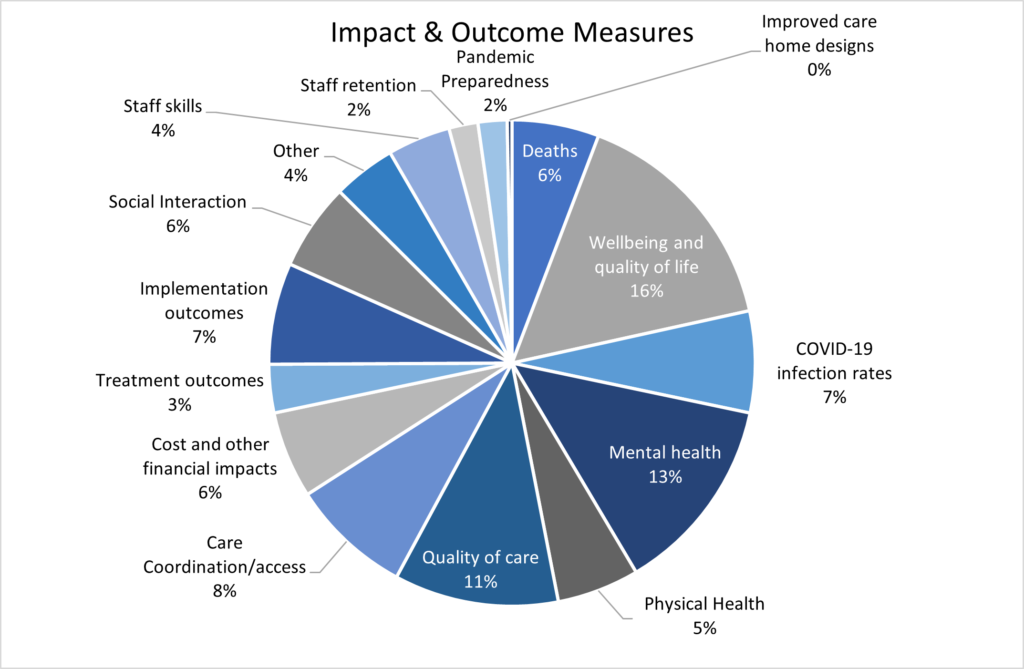
The database is still growing and we are constantly looking for new projects to add. If you have a project that you’d like to share, please fill out the form here: https://ltccovid.org/submit-research-project-details/
